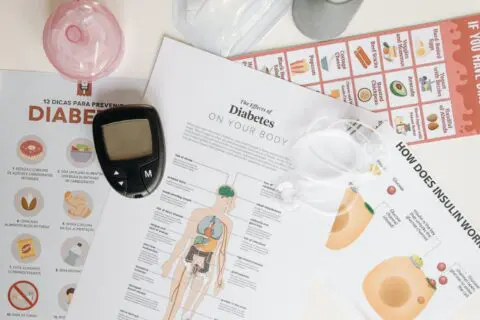Diabetic neuropathy is caused by damage to nerve cells caused by high blood sugar levels. This article explores the four basic types of autonomic neuropathy, their symptoms, and treatments.
Peripheral Autonomic Neuropathy
Peripheral autonomic neuropathy is often described as having a “stocking and glove” distribution. It causes numbness, burning pain, and tingling in the arms, hands, legs, and feet. This condition increases the risk of foot ulcers because cuts and other foot injuries can go unnoticed. Patients are advised to wear well-fitting shoes and take good care of their feet.
Patients should walk daily for peripheral autonomic neuropathy of the feet. Pentoxifylline, or Trental, may be prescribed to improve blood flow. Patients should check their feet regularly for scratches, redness, and blisters and report any lesions to their physician or podiatrist. Toenails should be trimmed straight across to prevent ingrown toenails.
Peripheral Neuropathy
Peripheral neuropathy causes pain in the thighs, hips, and buttocks, usually on one side, and can cause weakness in the affected leg. Medications for nerve pain include:
- Carbamazepine (Tegretol)
- Gabapentin (Neurontin)
- Oxcarbazepine (Oxtellar XR, Trileptal)
- Pregabalin (Lyrica)
- Topiramate (Topamax)
Focal Neuropathy
Focal neuropathy can affect the eyes, one side of the face, chest, or abdomen. Symptoms include painful eyes, double vision, and facial paralysis (Bell’s Palsy). Chest or abdominal pain can mimic a heart attack or appendicitis. Severe back or leg pain can be mistaken for a herniated disk. Treatments often involve the same medications used for peripheral neuropathies.
Autonomic Neuropathy
Autonomic neuropathy affects the digestive system, blood vessels, and genitourinary system. Symptoms can include:
- Digestive Issues: Early satiety, bloating, constipation, diarrhea, nausea, vomiting, heartburn.
- Urinary Problems: Difficulty emptying the bladder, nocturnal urination, incontinence, bloating.
- Reproductive Issues: Women may experience vaginal dryness and lack of orgasms; men may struggle with erections or ejaculation.
- Blood Vessel Damage: Low blood pressure, dizziness, fainting, rapid heartbeat, nausea, vomiting.
Treatments:
- Gastroparesis: Reglan (metoclopramide)
- Diarrhea and Constipation: Over-the-counter medications
- Erectile Dysfunction: Viagra, Cialis
- Vaginal Dryness: Estrogen creams
- Low Blood Pressure: Florinef (fludrocortisone), Mestinon (midodrine, pyridostigmine), beta-blockers like Inderal (propranolol)
How Can I Prevent Diabetic Neuropathy?
Preventing diabetic neuropathy involves controlling blood sugar levels with a healthy diet and regular physical activity. Many diabetes specialists recommend keeping HbA1c levels below 7.0%.
Get Professional Advice with QuickMD
For personalized medical advice and treatment for diabetic neuropathy, QuickMD’s telemedicine urgent care services are here to help. Consult with a QuickMD provider today to manage your condition effectively and prevent complications.
Concerned about diabetic neuropathy? Visit QuickMD today to schedule your telemedicine appointment and get expert guidance on managing diabetic neuropathy safely and effectively.




